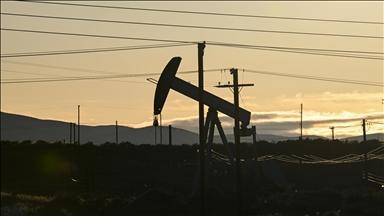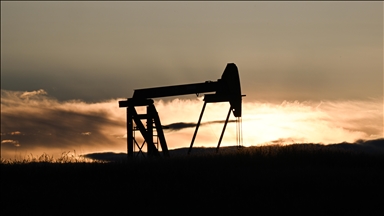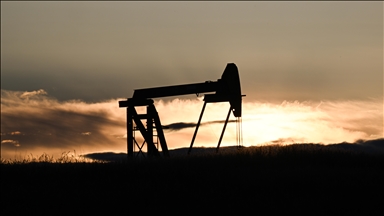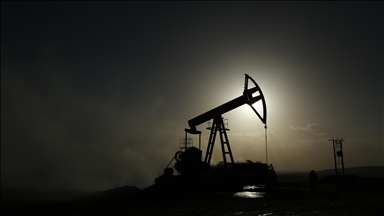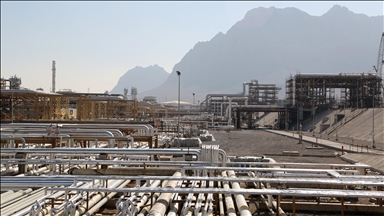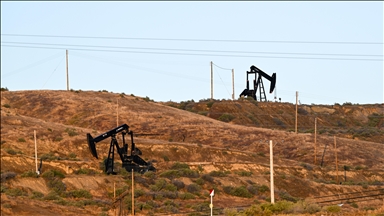Experts counter claim that oil is Scotland's savior
Scotland to hold 90 percent of UK oil reserves and £1.5 trillion tax revenue if it secedes. But experts believe role of North Sea oil has been greatly exaggerated.
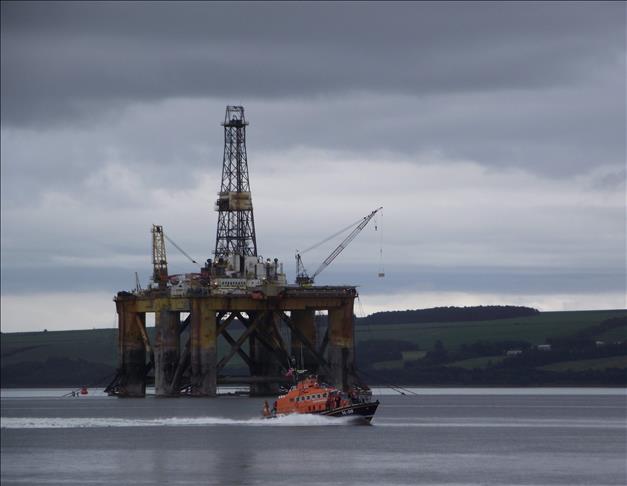
By Selen Tonkus and Zeynep Beyza Karabay
ANKARA
Should it vote Thursday to secede, Scotland will hold 90 percent of the North Sea oil reserves and will gain £1 trillion or more of tax revenue from it over the coming years.
But some experts believe the role of North Sea oil has been greatly exaggerated during the campaign for independence.
Everything will unfold Thursday when the fate of Scotland -- and that of the rest of the U.K. -- will be determined by the much- anticipated referendum.
Scots will be asked whether they want to secede from the union of which they have been part for 307 years. Polls show the margin between the "yes" and "no" votes makes the outcome too close to call.
But some experts, in contrast to "yes" campaigners, believe that oil will not be the savior of an independent Scotland, as pro-independence campaigners hope.
The North Sea reserves have been used as a propaganda tool and put forth as crucial for Scotland's future wealth by Scottish leader Alex Salmond, according to Jason Pack, a researcher of world history at Cambridge University and president of Libya-Analysis.com.
"This is a fallacy, because the oil boom in the North Sea happened in the '80s and '90s and was largely spent on decreasing taxes and promoting business and privatization," Pack said.
"Oil is just an added bonus for Scotland but it is the only added bonus the Scots would derive from separating," he said. "But that would’ve mattered more earlier in the production cycle than now."
Not all experts agree. Energy lawyer Hugh Fraser, a partner in the Dubai-based law firm Andrew Kurth, said this week that the £1 trillion-plus of remaining North Sea reserves could help an independent Scotland if used wisely. And he pointed out that the U.K., to which Scotland is currently tied, is £1.4 trillion in debt.
Other experts note that oil revenue is in continual decline, which they say means that oil is not a viable option for Scotland to rely on. Still, they say, England's economy will be negatively affected to some extent.
If Scotland decides to separate, future investments in the region would be jeopardized, according to Abhishek Deshpande, an oil markets strategist at Natixis, a French corporate and investment bank.
"Investing capital by oil companies in a region where oil production has been declining for a while now and has limited prospects in the future is a move companies would be reluctant to pursue," Deshpande said.
The North Sea reserves and their ownership rights have been used heavily during the referendum campaign. Salmond worked as an oil economist for Scottish Royal Bank in the 1980s and has a solid grasp of the subject, said Cuneyt Kazokoglu, an expert with Facts Global Energy.
"Projections show that total U.K. oil production will fall from 840,000 barrels per day to 500,000 barrels per day in the next 15 years," Kazokoglu said.
Salmond's contention that oil will sustain Scottish independence does not reflect reality, because annual tax revenue from oil has dropped from £12 billion in 2009 to below £5 billion currently, according to Kazokoglu.
"Scotland will only be able to extract 5 billion barrels of oil in the next 30 years," he said.
But estimates vary. Fraser said 16.5 billion barrels remain available for extraction.
Another factor, though, is that, as oil reserves dwindle, the costs of extraction tend to increase, and more sophisticated technology may be needed.
Because British Petroleum has favored remaining united, Scottish nationalists are considering nationalization of these energy arenas, according to Mehmet Ogutcu, president of the London-based Global Resources Corporation, which offers energy expertise.
"North Sea oil reserves reached their peak in the '80s and '90s. They have been in decline for a while," Ogutcu said.
What will happen to the energy resources, such as nuclear power plants and offshore wind turbines and the revenue they generate, as well as the responsibility for running them, will be a big concern in the event that Scotland secedes, he said.
If Salmond and his Scottish National Party are successful in their campaign and the "yes" vote wins, Scotland is not expected to leave the U.K. entirely until 2016. The Scottish National Party proposes March 26, 2016, as its Independence Day.
If the "no" vote succeeds, the Scottish parliament will receive “extensive new powers” promised by the leading political figures of England.
In a recent poll, the Observer newspaper put the “No” vote at 47 percent and “Yes” at 53 percent.
www.aa.com.tr/en
Anadolu Agency website contains only a portion of the news stories offered to subscribers in the AA News Broadcasting System (HAS), and in summarized form. Please contact us for subscription options.


